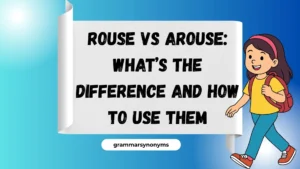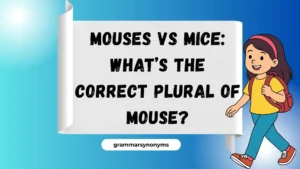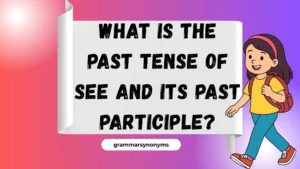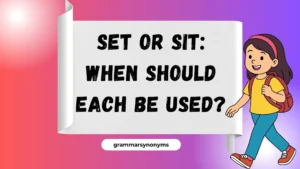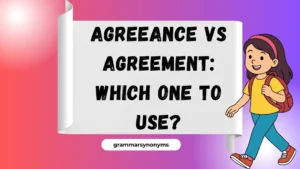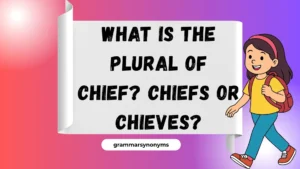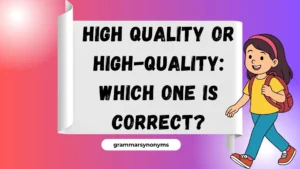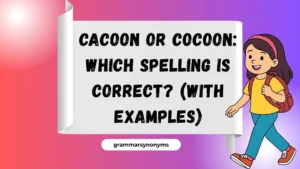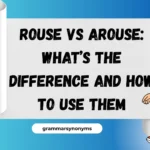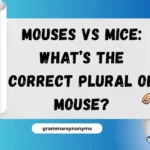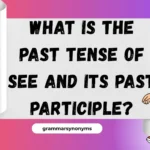Finding the right words to express gratitude and warmth can strengthen relationships, create a positive atmosphere, and make conversations more personal. While “The pleasure is all mine” is a polite and heartfelt response to thanks, there are many other ways to express appreciation and kindness. This guide explores 30 thoughtful alternatives that can help you sound more genuine, professional, or even casual, depending on the situation.
What Does “The Pleasure Is All Mine” Mean?
“The pleasure is all mine” is a polite expression used to convey that the speaker is pleased or honored by something the other person has done or said. It’s a way of showing appreciation, often after someone thanks you or expresses gratitude. It can be used in both formal and informal settings, and it’s generally considered polite.
Is It Professional/Polite to Say “The Pleasure Is All Mine”?
In a professional context, it’s definitely appropriate to say “The pleasure is all mine,” especially when you’re meeting someone or thanking them for their time or assistance. It conveys respect and good manners.
For example, after a business meeting or a thank you for a favor, you might respond with, “The pleasure is all mine,” to show that you were happy to help or engage.
Pros & Cons of Using “The Pleasure Is All Mine”
Pros:
- Sounds gracious, warm, and elegant.
- Works well in professional and polite settings.
- Expresses genuine appreciation.
Cons:
- Can sound too formal in casual settings.
- May feel outdated in modern speech.
- Some people might prefer simpler expressions.
Synonyms For “The Pleasure Is All Mine”
- It was my pleasure.
- Happy to help!
- I enjoyed it!
- Always happy to assist.
- You’re very welcome.
- No problem at all!
- I’m glad I could help.
- Don’t mention it!
- Anytime!
- With pleasure.
- It was an honor.
- I’m grateful for the opportunity.
- More than happy to help.
- My pleasure entirely.
- I was happy to do it.
- Glad to be of service.
- It was nothing at all.
- I wouldn’t have missed it for the world!
- I’m always here for you.
- Consider it done!
- No worries!
- It made me happy to help.
- I’d do it again in a heartbeat.
- Of course!
- Absolutely!
- It was truly my honor.
- No need to thank me.
- That’s what I’m here for.
- I appreciate the opportunity to help.
- It was a joy to assist.
1. It was my pleasure.
Definition: A direct and widely accepted alternative.
Detailed Explanation: This phrase carries the same polite and formal tone as “The pleasure is all mine” but is more commonly used in business and customer service settings.
Scenario Example:
Client: “Thank you for your excellent service!”
Employee: “It was my pleasure! I’m happy to help.”
Best Use: Professional, customer service, polite conversations.
Tone: Warm and professional.
Additional Notes: Works well in both formal and semi-formal settings.
2. Happy to help!
Definition: A casual and friendly way to respond to gratitude.
Detailed Explanation: This phrase sounds more approachable and easygoing, making it ideal for informal settings and workplaces.
Scenario Example:
Colleague: “Thanks for covering my shift today!”
You: “Happy to help!”
Best Use: Casual, friendly, and everyday interactions.
Tone: Cheerful and relaxed.
Additional Notes: Great for quick and informal exchanges.
3. I enjoyed it!
Definition: Expresses that the task was genuinely enjoyable.
Detailed Explanation: Instead of just acknowledging gratitude, this phrase adds a personal touch by showing that you truly found joy in helping.
Scenario Example:
Friend: “Thanks for cooking dinner tonight!”
You: “I enjoyed it! Cooking for you is always fun.”
Best Use: Personal and informal settings.
Tone: Friendly and heartfelt.
Additional Notes: Works well when expressing genuine enjoyment.
4. Always happy to assist.
Definition: A polite and professional way to express willingness to help.
Detailed Explanation: This phrase is commonly used in customer service, workplace interactions, and formal settings. It assures the other person that you’re always available to help.
Scenario Example:
Client: “Thank you for resolving the issue so quickly!”
You: “Always happy to assist! Let me know if you need anything else.”
Best Use: Business, customer service, and professional settings.
Tone: Polite, professional, and helpful.
Additional Notes: Ideal for workplace environments where providing assistance is part of the role.
5. You’re very welcome.
Definition: A standard and warm response to gratitude.
Detailed Explanation: This phrase is a step up from ‘you’re welcome’, adding a touch of extra warmth and sincerity.
Scenario Example:
Friend: “Thanks for helping me move!”
You: “You’re very welcome! I wouldn’t miss it.”
Best Use: Casual and polite conversations.
Tone: Friendly and warm.
Additional Notes: Works well in both formal and informal settings.
6. No problem at all!
Definition: A casual way to say that helping wasn’t an inconvenience.
Detailed Explanation: This phrase is friendly and reassuring, letting the other person know that helping was effortless.
Scenario Example:
Neighbor: “I appreciate you watching my dog over the weekend.”
You: “No problem at all! He was a joy to have around.”
Best Use: Casual and friendly settings.
Tone: Relaxed and conversational.
Additional Notes: Best used with friends, family, and colleagues in non-formal interactions.
7. I’m glad I could help.
Definition: Expresses happiness in being of assistance.
Detailed Explanation: This phrase conveys a sense of fulfillment and shows genuine appreciation for being helpful.
Scenario Example:
Coworker: “Thanks for covering for me at work today.”
You: “I’m glad I could help! Let me know if you need it again.”
Best Use: Professional and casual settings.
Tone: Warm and sincere.
Additional Notes: Works well when you truly enjoyed being helpful.
8. Don’t mention it!
Definition: A friendly way of downplaying gratitude.
Detailed Explanation: This phrase reassures the other person that no thanks were necessary, making the response feel humble and effortless.
Scenario Example:
Colleague: “I really appreciate your support today.”
You: “Don’t mention it! That’s what teammates are for.”
Best Use: Casual and informal settings.
Tone: Humble and relaxed.
Additional Notes: Can be used lightheartedly, but may not be suitable for formal business settings.
9. Anytime!
Definition: Expresses openness to helping again in the future.
Detailed Explanation: This phrase reassures the other person that you’d gladly help them again whenever needed.
Scenario Example:
Sibling: “Thanks for picking me up from the airport!”
You: “Anytime! Just give me a call when you need a ride.”
Best Use: Casual and friendly conversations.
Tone: Warm and reassuring.
Additional Notes: Works best in personal relationships where ongoing support is implied.
10. With pleasure.
Definition: A formal and elegant way to express willingness to help.
Detailed Explanation: This phrase is polite and slightly sophisticated, making it a good choice for business, customer service, and formal gatherings.
Scenario Example:
Client: “Thank you for handling my request so efficiently.”
You: “With pleasure! Let me know if I can assist further.”
Best Use: Formal, professional, and customer service settings.
Tone: Polished and respectful.
Additional Notes: Works well in high-end or luxury service industries.
11. It was an honor.
Definition: Expresses deep respect and appreciation for the opportunity.
Detailed Explanation: This phrase is often used when acknowledging a significant or meaningful action, such as receiving an award or assisting someone in an important situation.
Scenario Example:
Guest Speaker: “Thanks for inviting me to speak at this event.”
You: “It was an honor! Your insights were truly inspiring.”
Best Use: Formal and special occasions.
Tone: Respectful and sincere.
Additional Notes: Best for moments of high importance rather than everyday conversations.
12. I’m grateful for the opportunity.
Definition: Shows deep appreciation for being involved.
Detailed Explanation: This phrase expresses not just pleasure but gratitude for being able to help. It is often used in work-related or formal settings.
Scenario Example:
Boss: “Thanks for your hard work on this project.”
You: “I’m grateful for the opportunity to contribute!”
Best Use: Professional and formal conversations.
Tone: Humble and appreciative.
Additional Notes: Great for career-related interactions.
13. More than happy to help.
Definition: Emphasizes eagerness to assist.
Detailed Explanation: This phrase adds enthusiasm to your response, making it warm and welcoming.
Scenario Example:
Neighbor: “Thanks for helping me set up my internet.”
You: “More than happy to help! Let me know if you need anything else.”
Best Use: Casual and friendly settings.
Tone: Cheerful and reassuring.
Additional Notes: Adds extra warmth to the conversation.
14. My pleasure entirely.
Definition: An elegant and gracious way to express that helping was entirely enjoyable.
Detailed Explanation: This phrase communicates a sense of complete satisfaction in assisting someone. It’s often used when the help provided has been a pleasurable experience.
Scenario Example:
Colleague: “I appreciate you helping me with the presentation.”
You: “My pleasure entirely! I’m glad to help make it great.”
Best Use: Formal and polite situations.
Tone: Gracious and warm.
Additional Notes: Best used in professional settings or when you want to convey full enthusiasm.
15. I was happy to do it.
Definition: Expresses satisfaction and willingness in helping.
Detailed Explanation: This phrase emphasizes that you were genuinely pleased to help and that it wasn’t an imposition.
Scenario Example:
Friend: “Thanks for letting me borrow your car.”
You: “I was happy to do it! Anytime you need it again, just ask.”
Best Use: Casual, friendly interactions.
Tone: Friendly and genuine.
Additional Notes: Works well when you want to add personal warmth to your response.
16. Glad to be of service.
Definition: A formal way of saying that you are happy to have been helpful.
Detailed Explanation: This phrase communicates a professional and helpful tone, often used in customer service or formal settings.
Scenario Example:
Customer: “Thanks for all your help today.”
You: “Glad to be of service! Let me know if you need anything else.”
Best Use: Professional, customer service, or formal scenarios.
Tone: Polite and professional.
Additional Notes: It’s a respectful way to show that you appreciate being helpful.
17. It was nothing at all.
Definition: A casual way to downplay any need for thanks, making your assistance seem effortless.
Detailed Explanation: This phrase is humble and reassures the person that helping didn’t take much effort on your part.
Scenario Example:
Neighbor: “Thanks for helping me with the groceries!”
You: “It was nothing at all! Happy to help.”
Best Use: Informal settings with friends, family, or close colleagues.
Tone: Casual and modest.
Additional Notes: Works well when you want to downplay the help given and keep things lighthearted.
18. I wouldn’t have missed it for the world!
Definition: An enthusiastic way to express that you were thrilled to help.
Detailed Explanation: This phrase conveys excitement and eagerness in helping, making it ideal for moments when you were eager to contribute.
Scenario Example:
Friend: “Thanks for helping me set up for my party!”
You: “I wouldn’t have missed it for the world! It was a blast.”
Best Use: Casual, personal settings with friends or family.
Tone: Excited and enthusiastic.
Additional Notes: Best for social situations or when you want to show you enjoyed helping.
19. I’m always here for you.
Definition: A warm and supportive way to say you’re always available to help.
Detailed Explanation: This phrase offers a reassuring sentiment that you’ll always be there for the other person when they need you.
Scenario Example:
Friend: “I really appreciate your help during a tough time.”
You: “I’m always here for you, no matter what.”
Best Use: Supportive, personal relationships.
Tone: Comforting and dependable.
Additional Notes: This phrase works well in close, personal relationships and offers an emotional level of support.
20. Consider it done!
Definition: A confident and assuring way to let someone know their request will be taken care of.
Detailed Explanation: This phrase expresses a strong commitment to fulfilling a request, giving the person confidence that it will be handled.
Scenario Example:
Boss: “Can you take care of the meeting notes today?”
You: “Consider it done!”
Best Use: Professional, workplace settings.
Tone: Confident and assuring.
Additional Notes: Great for task-oriented situations in a work environment.
21. No worries!
Definition: A casual phrase expressing that there’s no need for concern.
Detailed Explanation: This expression downplays any inconvenience and assures the person that you were happy to help without any trouble.
Scenario Example:
Co-worker: “Thanks for covering for me while I was out.”
You: “No worries! Glad to help.”
Best Use: Casual, friendly settings.
Tone: Relaxed and informal.
Additional Notes: Works best with close colleagues, friends, and family.
22. It made me happy to help.
Definition: A phrase that shows you found joy in assisting.
Detailed Explanation: This phrase conveys genuine happiness about being able to contribute or assist someone.
Scenario Example:
Client: “Thanks for your support today.”
You: “It made me happy to help. Let me know if you need anything else!”
Best Use: Personal and professional settings.
Tone: Grateful and warm.
Additional Notes: Can be used to express sincere joy in helping.
23. I’d do it again in a heartbeat.
Definition: A passionate way to show that you would gladly help again.
Detailed Explanation: This phrase adds enthusiasm and confidence to your response, emphasizing your willingness to assist again.
Scenario Example:
Friend: “I can’t thank you enough for helping me move.”
You: “I’d do it again in a heartbeat! Always happy to help.”
Best Use: Personal relationships with close friends or family.
Tone: Enthusiastic and reassuring.
Additional Notes: Great for friends and family, showing your eagerness to continue being supportive.
24. Of course!
Definition: A simple and friendly way to express willingness to help.
Detailed Explanation: This short phrase communicates that helping was a natural response, and you were happy to do it.
Scenario Example:
Neighbor: “Thanks for lending me your ladder.”
You: “Of course! Anytime you need it.”
Best Use: Casual and informal settings.
Tone: Friendly and casual.
Additional Notes: A simple, easy-going response for informal situations.
25. Absolutely!
Definition: A strong and enthusiastic expression of willingness.
Detailed Explanation: This phrase emphasizes certainty and enthusiasm when agreeing to help or responding to thanks.
Scenario Example:
Friend: “Thanks for helping me with the party decorations.”
You: “Absolutely! It was so much fun.”
Best Use: Casual, informal settings.
Tone: Excited and positive.
Additional Notes: Adds extra enthusiasm to a response, showing your eagerness to help.
26. It was truly my honor.
Definition: A respectful and formal way to show that helping was an important privilege.
Detailed Explanation: This phrase conveys humility and the value you place on being able to help.
Scenario Example:
Guest: “Thank you for inviting me to your event.”
You: “It was truly my honor. I’m glad you could join us.”
Best Use: Formal or ceremonial settings.
Tone: Respectful and dignified.
Additional Notes: Best for special occasions, such as ceremonies, awards, or formal events.
27. No need to thank me.
Definition: A humble way of letting someone know that their gratitude isn’t necessary.
Detailed Explanation: This phrase expresses that the help was a natural thing to do, downplaying the need for thanks.
Scenario Example:
Colleague: “I appreciate your help with this project.”
You: “No need to thank me. It was a team effort!”
Best Use: Casual and informal settings.
Tone: Humble and relaxed.
Additional Notes: Ideal for close colleagues or friends, where helping is part of the relationship.
28. That’s what I’m here for.
Definition: A reassuring and supportive way to express your willingness to help.
Detailed Explanation: This phrase shows commitment to being supportive, letting the other person know you are always available.
Scenario Example:
Friend: “Thanks for helping me with my resume.”
You: “That’s what I’m here for! I’m always happy to help you.”
Best Use: Casual, personal, or professional settings.
Tone: Supportive and reassuring.
Additional Notes: A great way to reaffirm your willingness to support or assist.
29. I appreciate the opportunity to help.
Definition: A formal way of expressing gratitude for being able to assist.
Detailed Explanation: This phrase expresses both gratitude and the value of helping, making it a great response in professional contexts.
Scenario Example:
Client: “Thanks for your assistance with this project.”
You: “I appreciate the opportunity to help. Let me know if you need anything further.”
Best Use: Professional and formal interactions.
Tone: Grateful and professional.
Additional Notes: Excellent for business settings where your role involves helping others.
30. It was a joy to assist.
Definition: A joyful expression of having enjoyed providing help.
Detailed Explanation: This phrase conveys that you enjoyed being of assistance, making it a pleasant and upbeat response.
Scenario Example:
Customer: “Thanks for helping me find that book!”
You: “It was a joy to assist! I’m glad I could help.”
Best Use: Friendly and professional settings.
Tone: Upbeat and pleasant.
Additional Notes: Great for showing that you enjoyed helping, especially in customer service or retail settings.
Conclusion
Using the right phrases when expressing gratitude helps to create stronger, more meaningful connections with others. Whether you prefer to be formal, casual, or enthusiastic, these alternatives to “The pleasure is all mine” will make your responses more personal and thoughtful. Let these options help you communicate with warmth and sincerity, no matter the situation.
FAQs
1. Why should I avoid saying “The pleasure is all mine”?
While “The pleasure is all mine” is polite, it can sound overly formal or clichéd in certain situations. Using alternatives allows you to sound more natural, sincere, and tailored to the context, whether it’s casual or professional.
2. When should I use formal alternatives to “The pleasure is all mine”?
Use formal phrases such as “It was my pleasure,” “It was an honor,” or “Glad to be of service” when engaging in business meetings, customer service, or professional events. These responses convey respect, professionalism, and a sense of appreciation.
3. Can I use casual alternatives with friends?
Yes! Casual phrases like “No worries,” “Happy to help,” “Anytime,” and “It was nothing at all” are perfect for informal settings with friends, family, or close colleagues. These phrases sound more relaxed and personal.
4. What are some alternatives to “The pleasure is all mine” in customer service?
In customer service, phrases like “Glad to be of service,” “It was a joy to assist,” and “I appreciate the opportunity to help” work well. They convey politeness and a willingness to be helpful while maintaining a professional tone.
5. How do I express enthusiasm when helping someone?
To show enthusiasm, try using phrases like “I’d do it again in a heartbeat,” “I wouldn’t have missed it for the world,” or “Absolutely!” These expressions add excitement and convey your genuine eagerness to help.

“Emma Brooke at Grammar Synonyms is your trusted source for mastering the art of language. Whether you’re looking for the perfect synonym, refining your grammar, or searching for that one ideal phrase, we’ve got you covered. With a wealth of tools and resources, Emma Brooke brings you creative solutions for all your writing needs, making sure your words always hit the mark. Unlock a world of language possibilities and elevate your writing with ease.”

